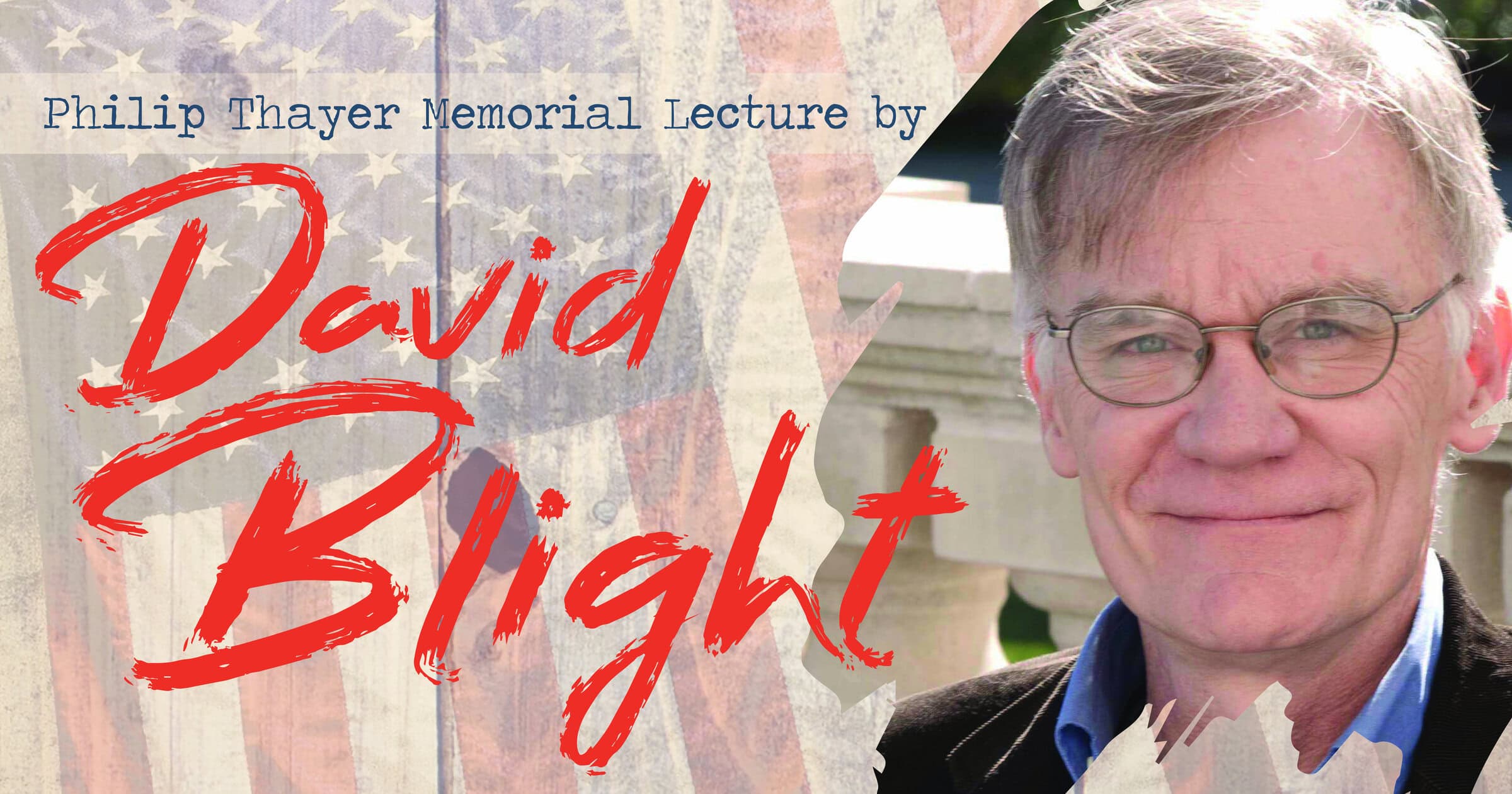

He previously taught at North Central College in Illinois, at Harvard University, and at Amherst College. Blight is also the author of Frederick Douglass's Civil War: Keeping Faith in Jubilee (1989) Race and Reunion: The Civil War in American Memory (2001), which garnered eight book awards including the Bancroft Prize, the Merle Curti Award, the Abraham Lincoln Prize and the Frederick Douglass Prize. In October of 2018, Simon and Schuster published his biography Frederick Douglass: Prophet of Freedom, which has won numerous book awards including the Pulitzer Prize in History, the Gilder Lehrman Lincoln Prize, the Bancroft Prize for History, and the Francis Parkman Prize. Blight is Sterling Professor of History and Director of the Gilder Lehrman Center for the Study of Slavery, Resistance, and Abolition at Yale University. Douglass, the man, was a remarkable person who lived through extraordinary times and events, but he was also, as David Blight reminds us, “thoroughly and beautifully human.” Blight tells us he understood “the multiply meanings of freedom…as perhaps no one else ever has in America.” But, all of these ideas were bound up in the mind of this complex intellectual. He was called by one influential writer “the greatest American of all time.” The radicalism of his early abolitionism has been overlooked by some thinkers, his commitment to self-reliance overlooked by others.

Blight carefully reminds us that Douglass and his ideas have been appropriated by a wide range of influential figures from across the political and ideological spectrum during the course of the twentieth and twenty-first century as well. It is that inner Douglass of deep self-introspection, a person willing to challenge oneself to new heights, that Blight beckons us to seek out in his writing on Douglass’s life. Douglass was, as historian David Blight offers, “a living prophet” of the American historical experience.įrom political outsider and radical abolitionist to political insider and Republican Party functionary, Douglass underwent his own evolution during the Civil War era. A study of his life is indeed a study of how our nation encounters and addresses one of the great ethical challenges of American history, how Americans reckon with the legacy and memory of enslavement. During the course of his fascinating life, Douglass, an escaped enslave person born in Talbott County, Maryland emerged as one of America’s deepest thinkers on the ethical questions surrounding American identity, on race, and on the issues of racial inequality in the nineteenth-century United States. To deny education to any people is one of the greatest crimes against human nature.” Frederick Douglass, Blessings of Liberty and Education (1894)įor the 2021 Institute for Honor, we pause to reexamine one of America’s greatest orators and most perceptive autobiographers, the African-American leader Frederick Douglass (1818-1895). It means the uplifting of the soul of man into the glorious light of truth, the light only by which men can be free. “Education, on the other hand, means emancipation. The Ethics of Historical Memory March 5, 2021, 2:15 PM - VIRTUAL EVENT


 0 kommentar(er)
0 kommentar(er)
